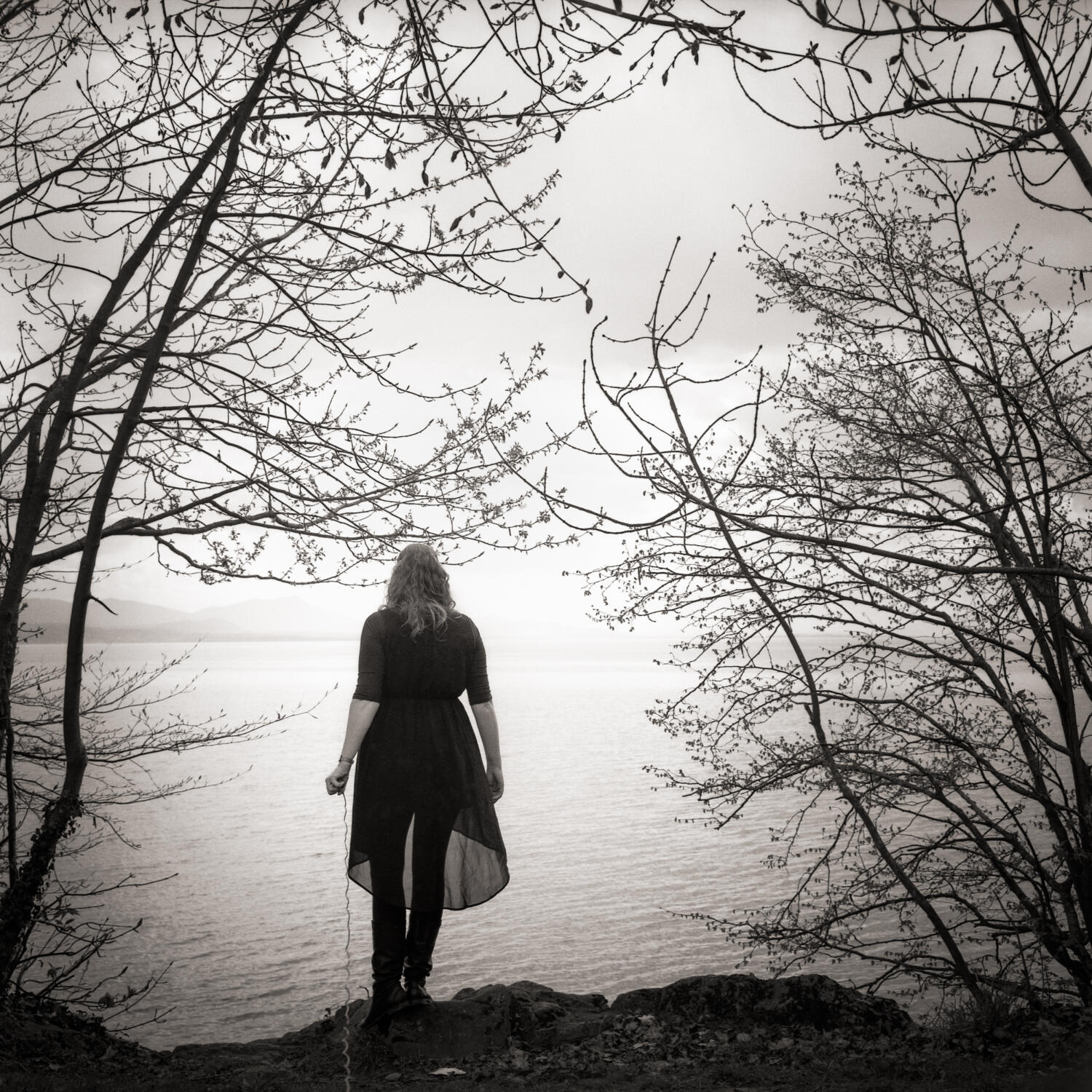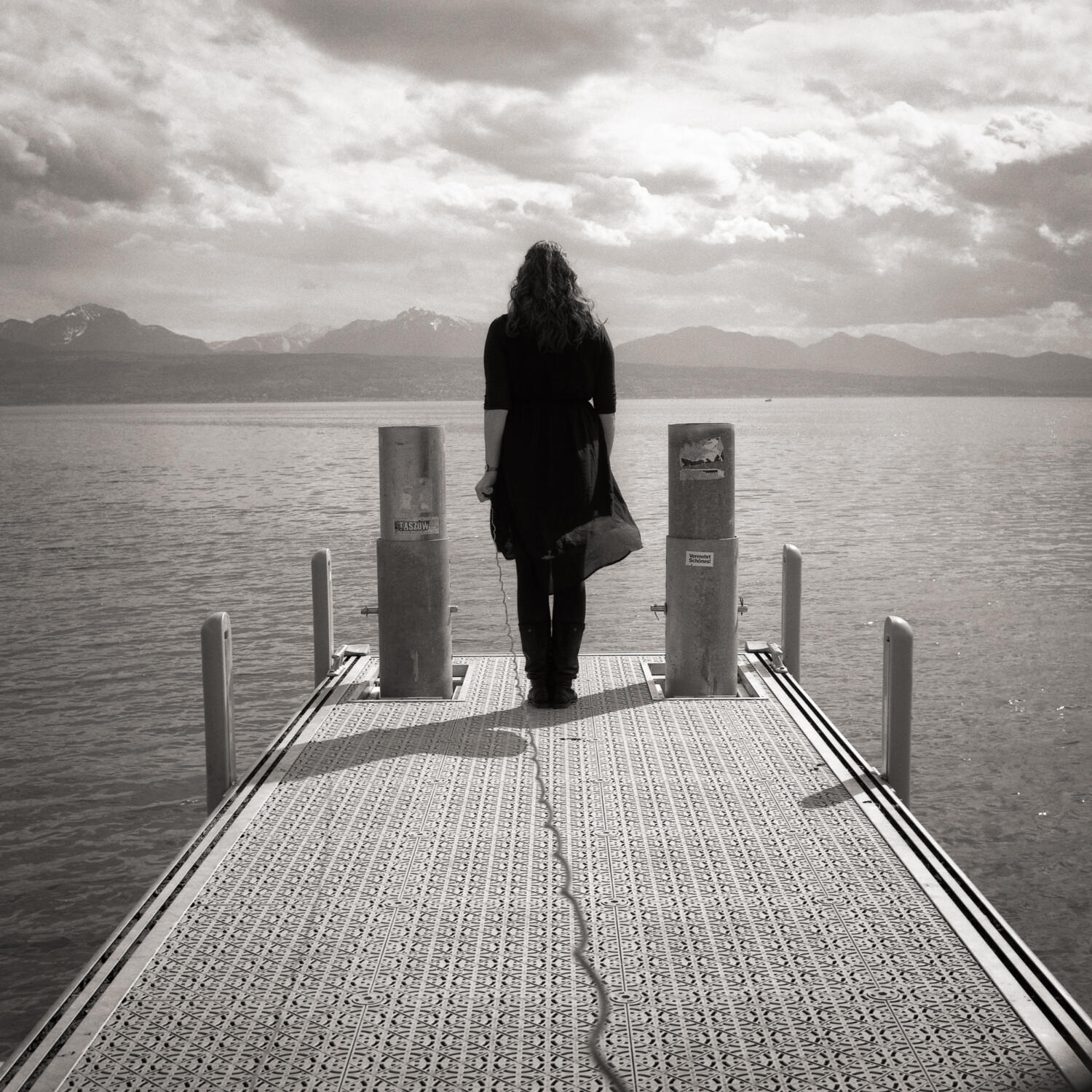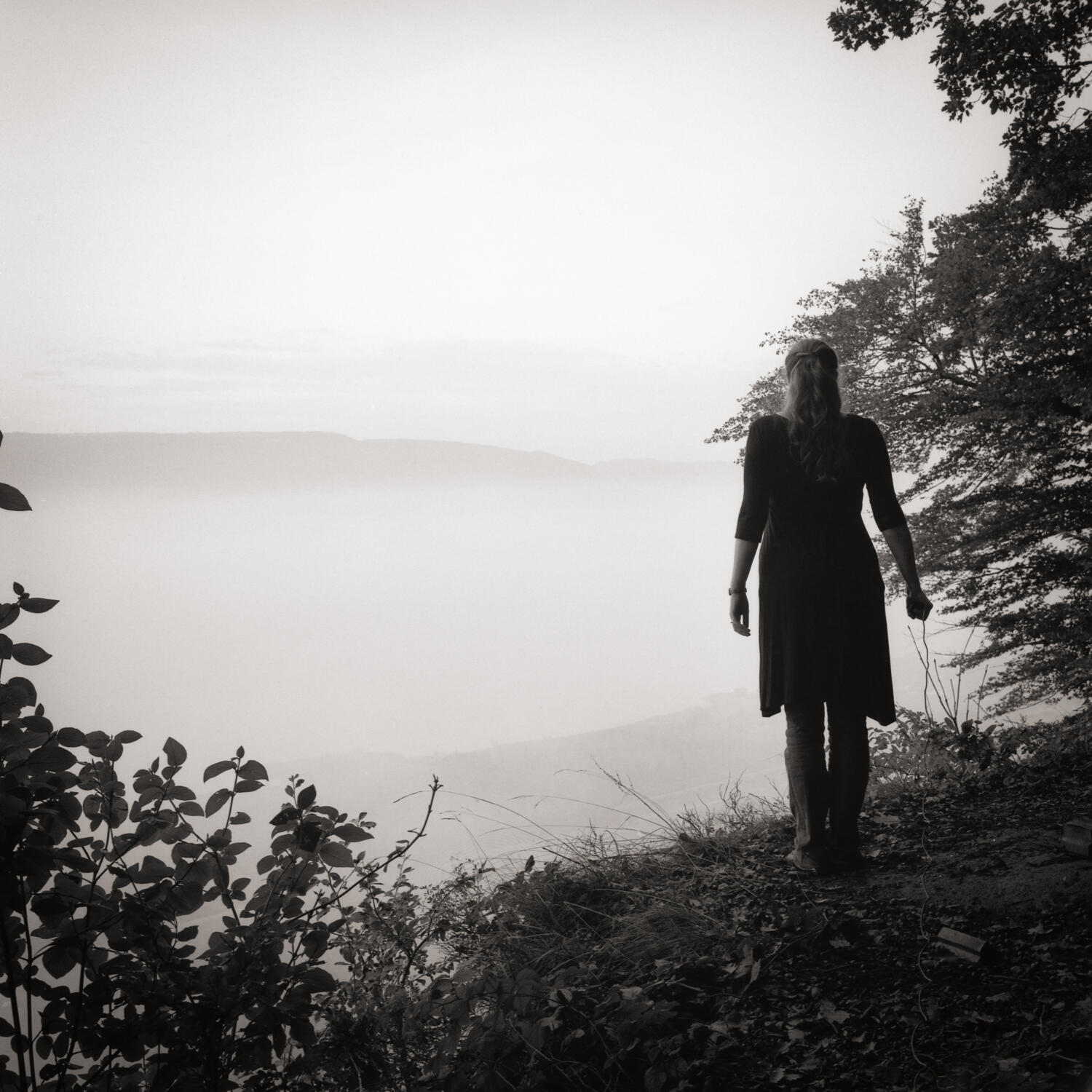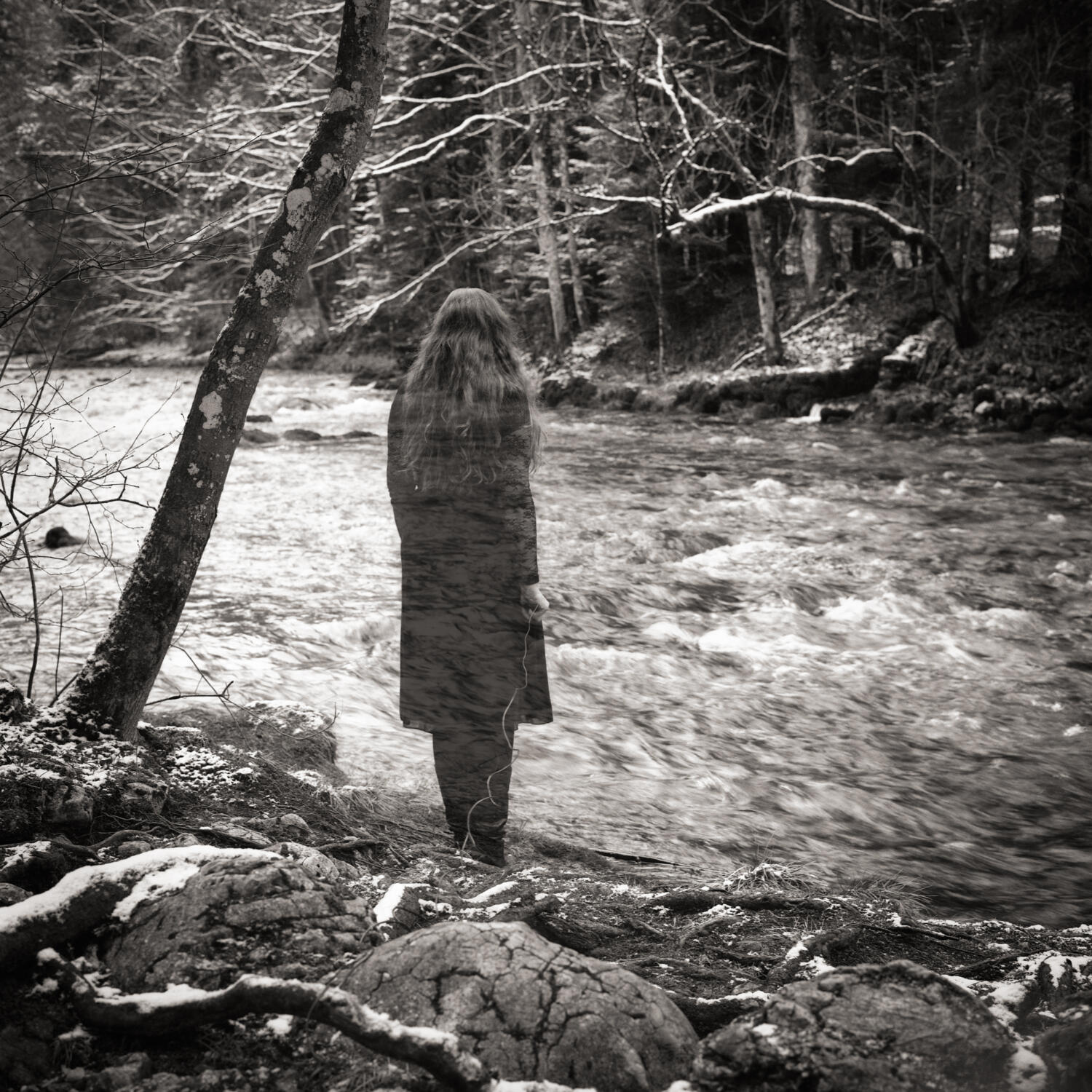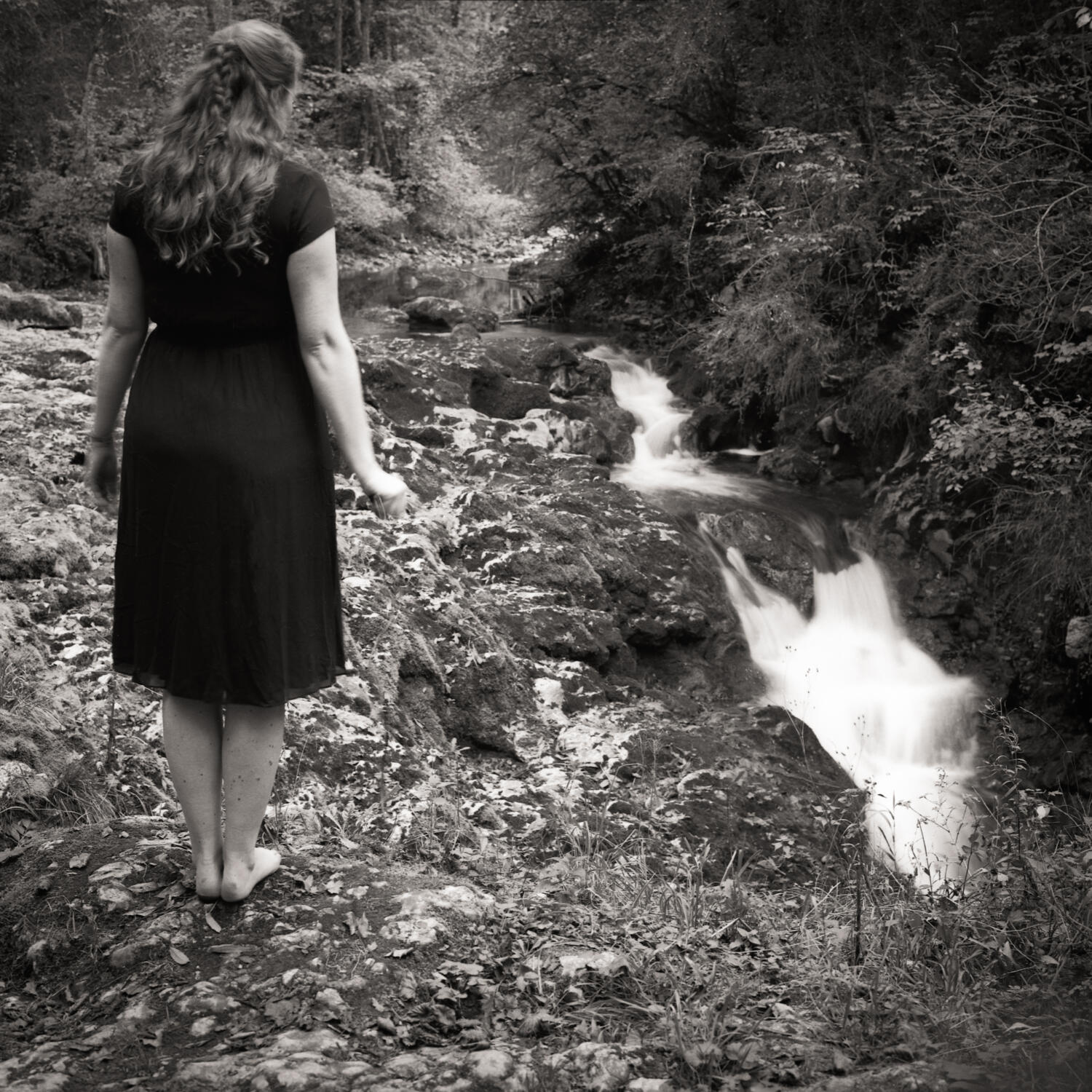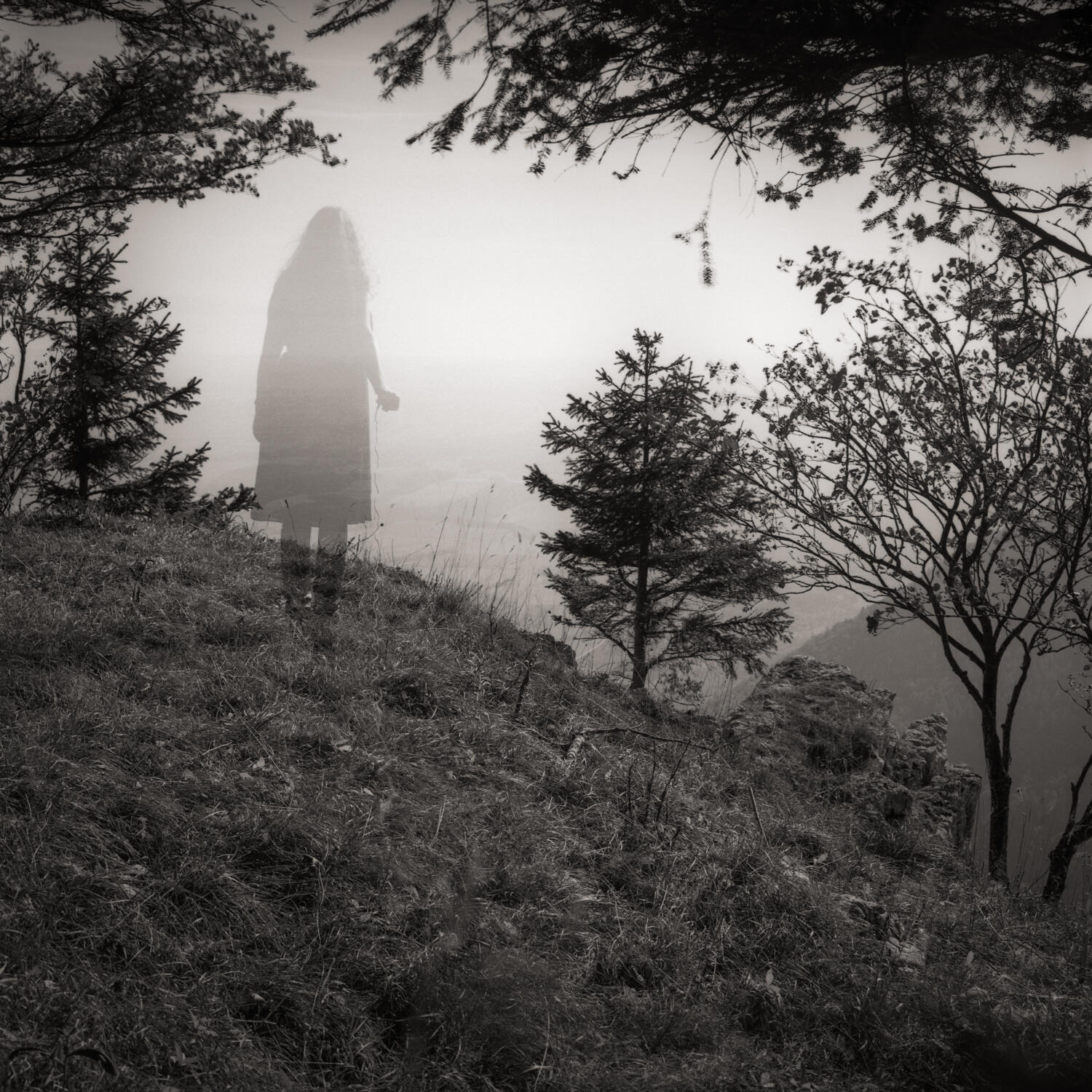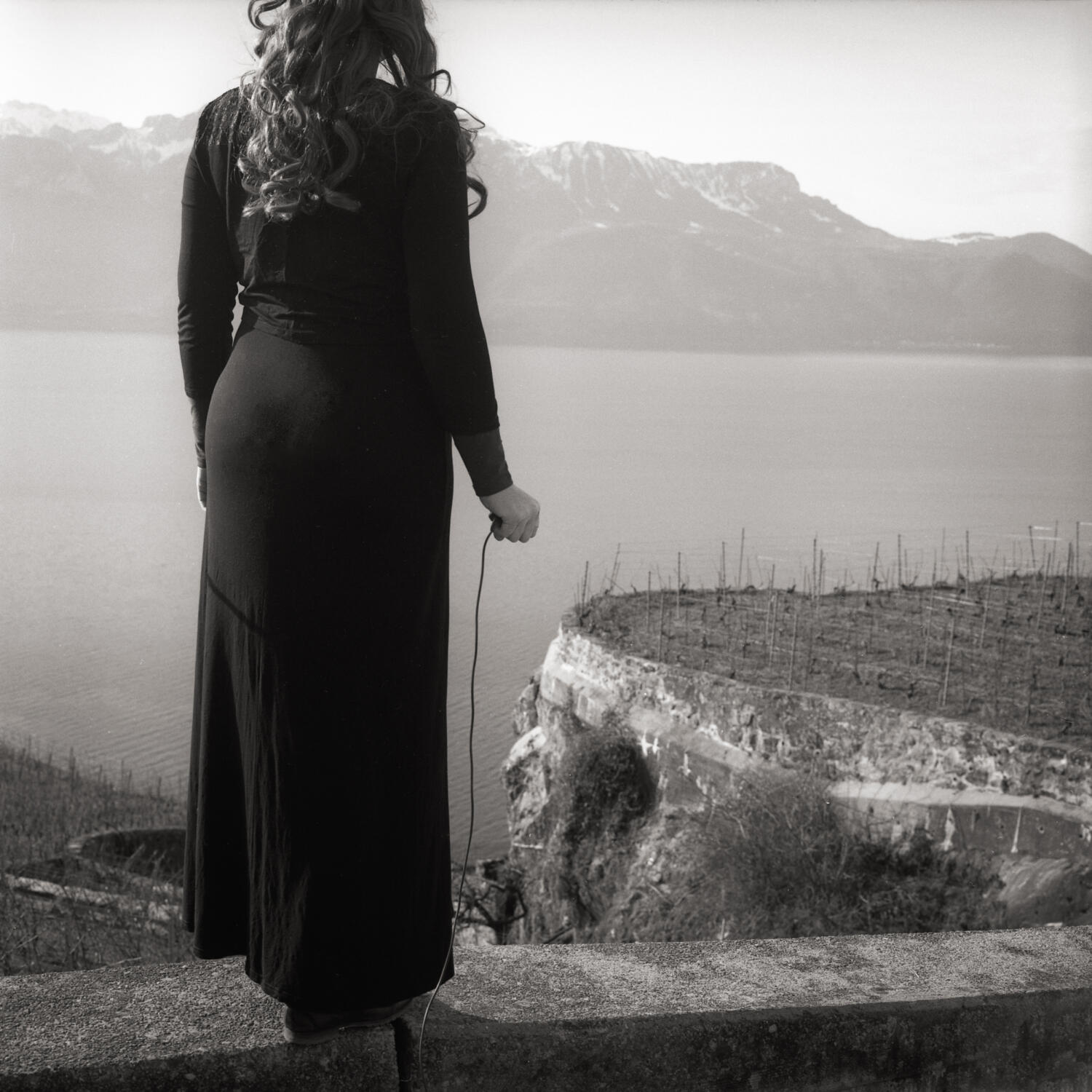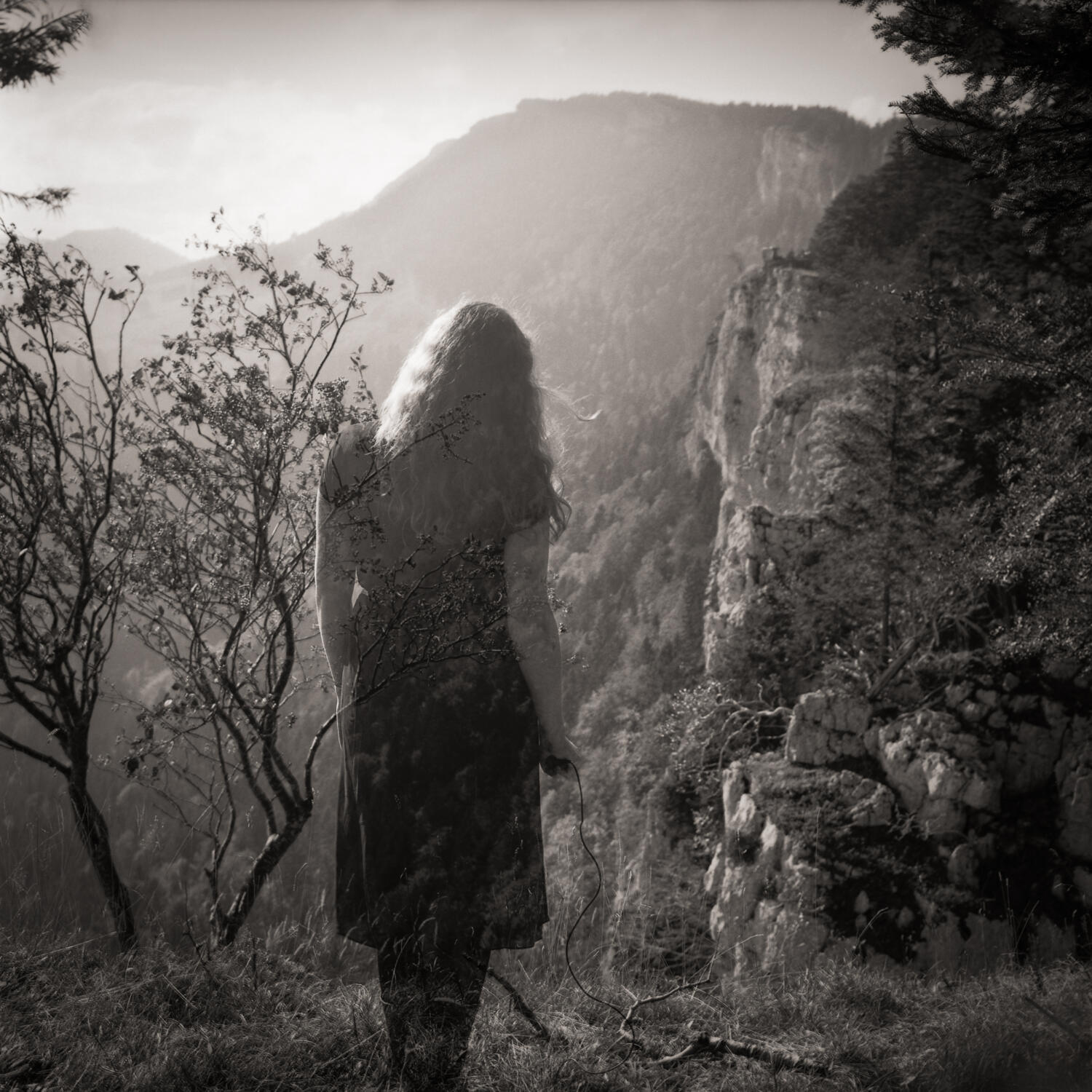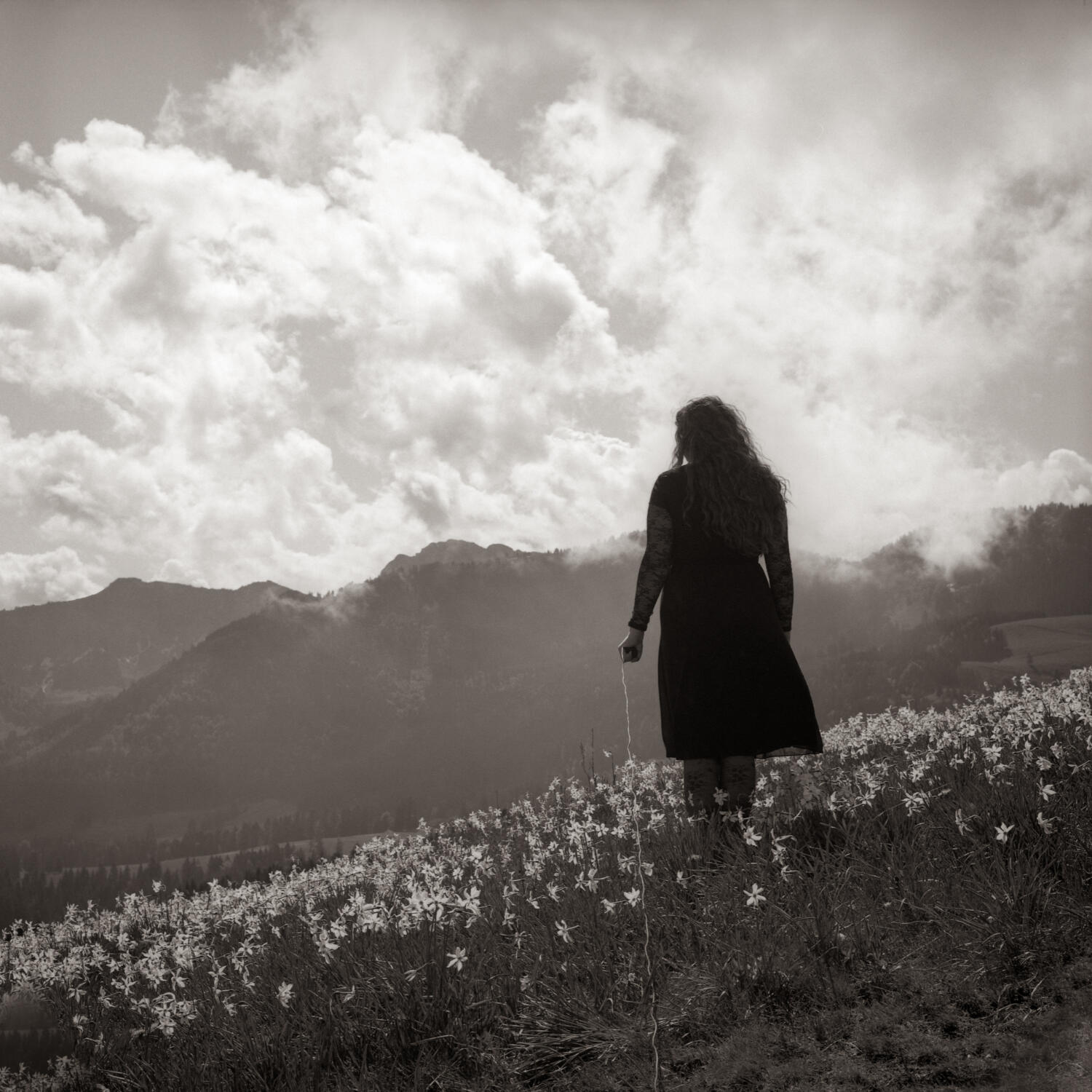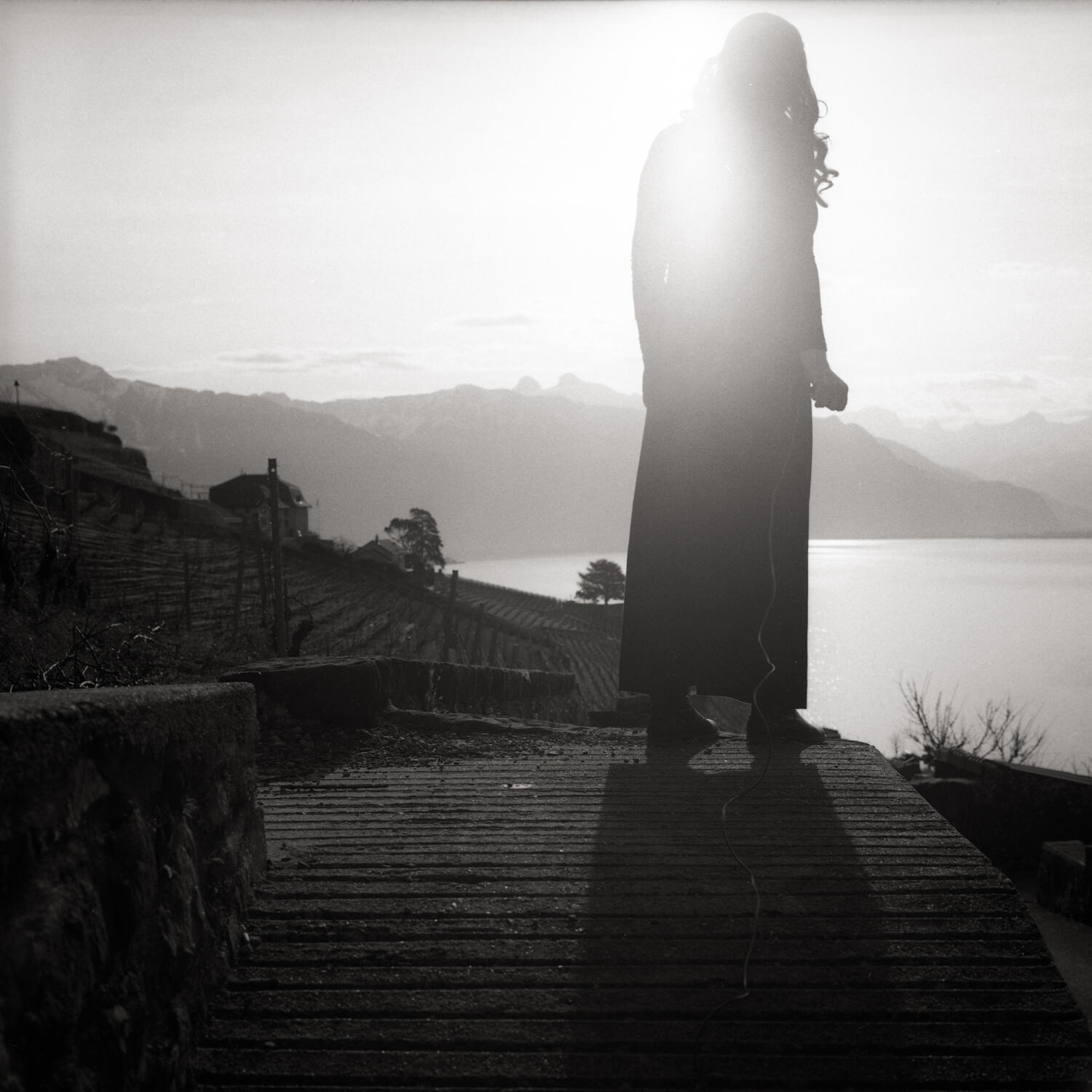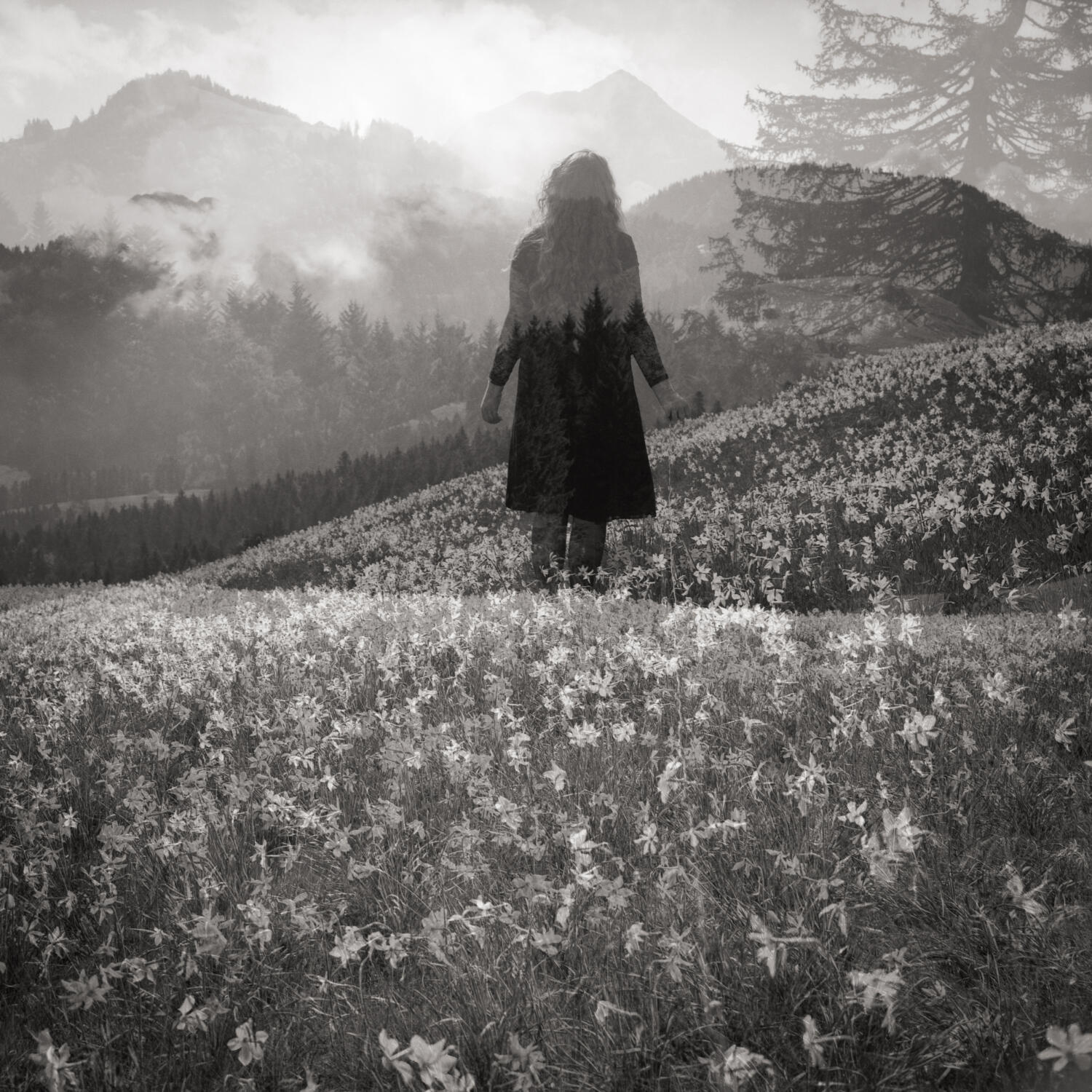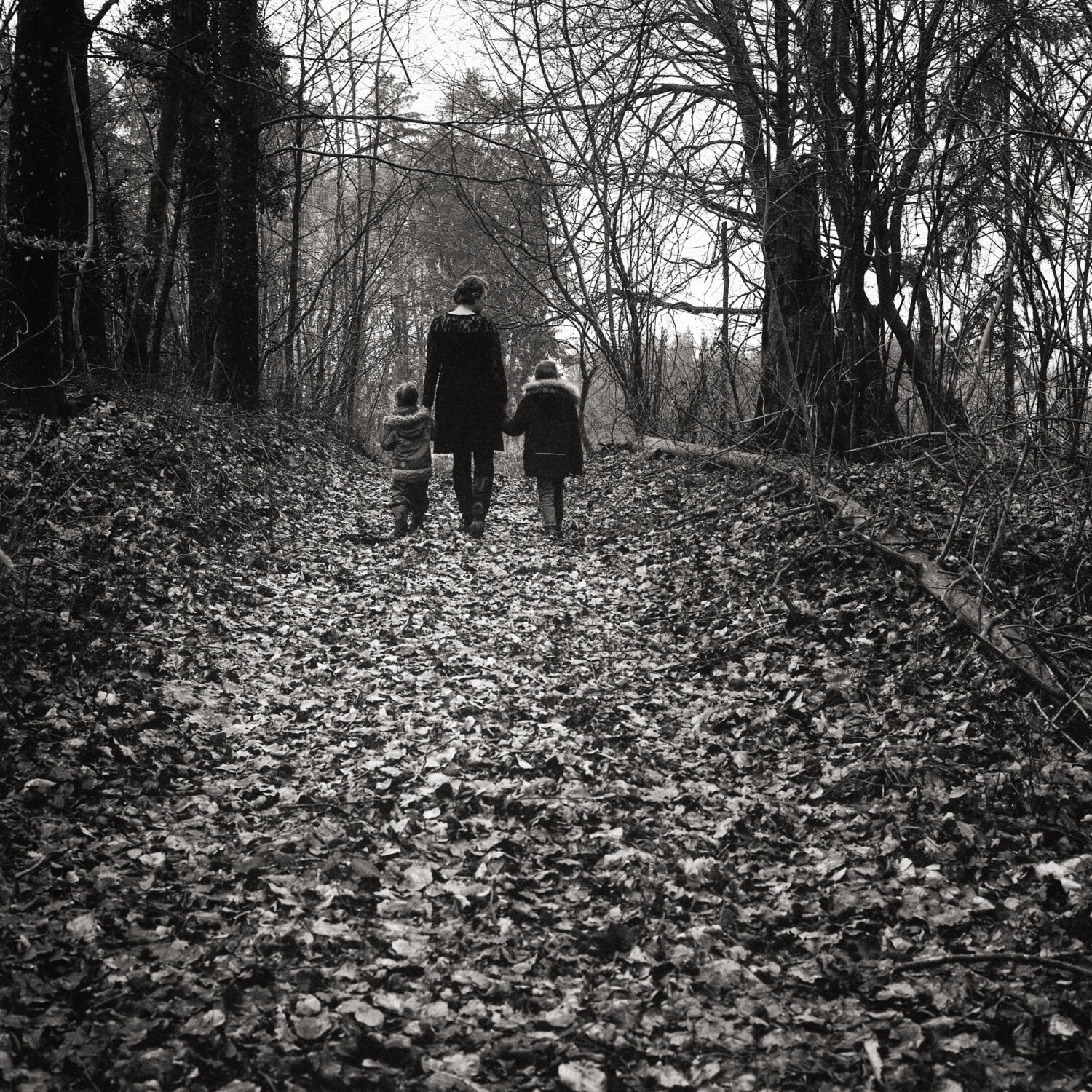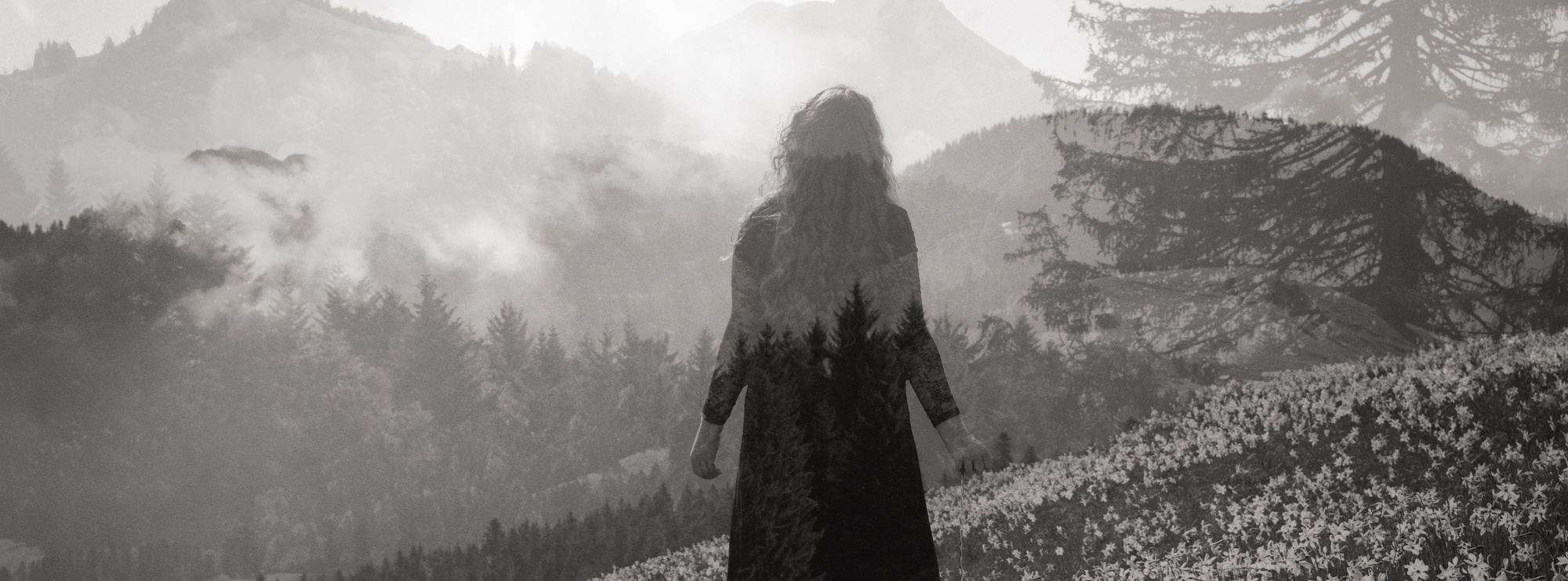
Alienor Llona Bonnard
Voguer vers Antycire
Studies show that one in five women who have given birth has experienced postpartum depression symptoms. The stigma surrounding mental health, in our society, pushes most to withdraw or pretend everything is all right, rather than to seek help. Melancholy has a long history and its treatment has at times been closer to torture than medicine. This project has been part of my own road to recovery, following the birth of my first child. I aimed to capture a sense of fragility and disconnectedness, to others and to one own sense of self. My creative paradigm for \"Voguer vers Antycire\" consists of a Rolleiflex camera loaded with black-and-white film, a cable release, self-portraiture and a black dress. Using a film camera to create self-portraits brings a distance between the performance in nature and the discovery of the image in the lab. This allows the performative experience to take centre stage. The photographic self-portrait allows me to discover hidden aspects of my personality, it is revealing due to a certain loss of control, as I cannot be in front and behind the lens at the same time. The loss of control, in connection with the performance, exposes glimpses of the unconscious. It is this element, simultaneously created and unexpected, that I am looking for. The self-portrait from the back is an anonymous figurative relay auspicious for the viewer\'s feeling of identification. The Rolleiflex dictates a slow work pace. I find this rhythm appropriate for a project that explores the notions of contemplation in order to feel our connection with nature, our connection to life. The cable release is like an umbilical cord that holds back the artist from the fall, from crossing the mirror, to the world of dreams, to the underworld. Since the melancholic contemplation can trigger desires of detaching oneself from the torments of reality. The black dress signifies femininity, fragility, beauty and mourning. The colour black was always associated with melancholy.
